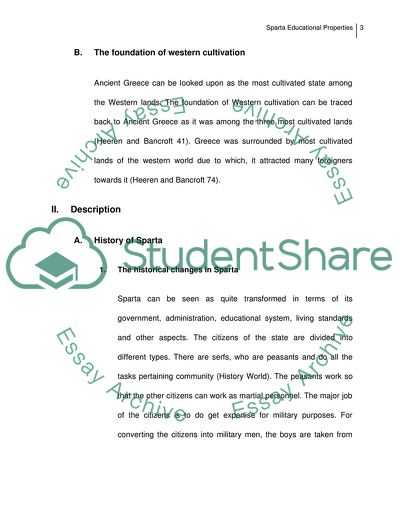Cite this document
(“History Of Education In Sparta Research Paper Example | Topics and Well Written Essays - 1500 words”, n.d.)
History Of Education In Sparta Research Paper Example | Topics and Well Written Essays - 1500 words. Retrieved from https://studentshare.org/education/1723040-sparta-education
History Of Education In Sparta Research Paper Example | Topics and Well Written Essays - 1500 words. Retrieved from https://studentshare.org/education/1723040-sparta-education
(History Of Education In Sparta Research Paper Example | Topics and Well Written Essays - 1500 Words)
History Of Education In Sparta Research Paper Example | Topics and Well Written Essays - 1500 Words. https://studentshare.org/education/1723040-sparta-education.
History Of Education In Sparta Research Paper Example | Topics and Well Written Essays - 1500 Words. https://studentshare.org/education/1723040-sparta-education.
“History Of Education In Sparta Research Paper Example | Topics and Well Written Essays - 1500 Words”, n.d. https://studentshare.org/education/1723040-sparta-education.


